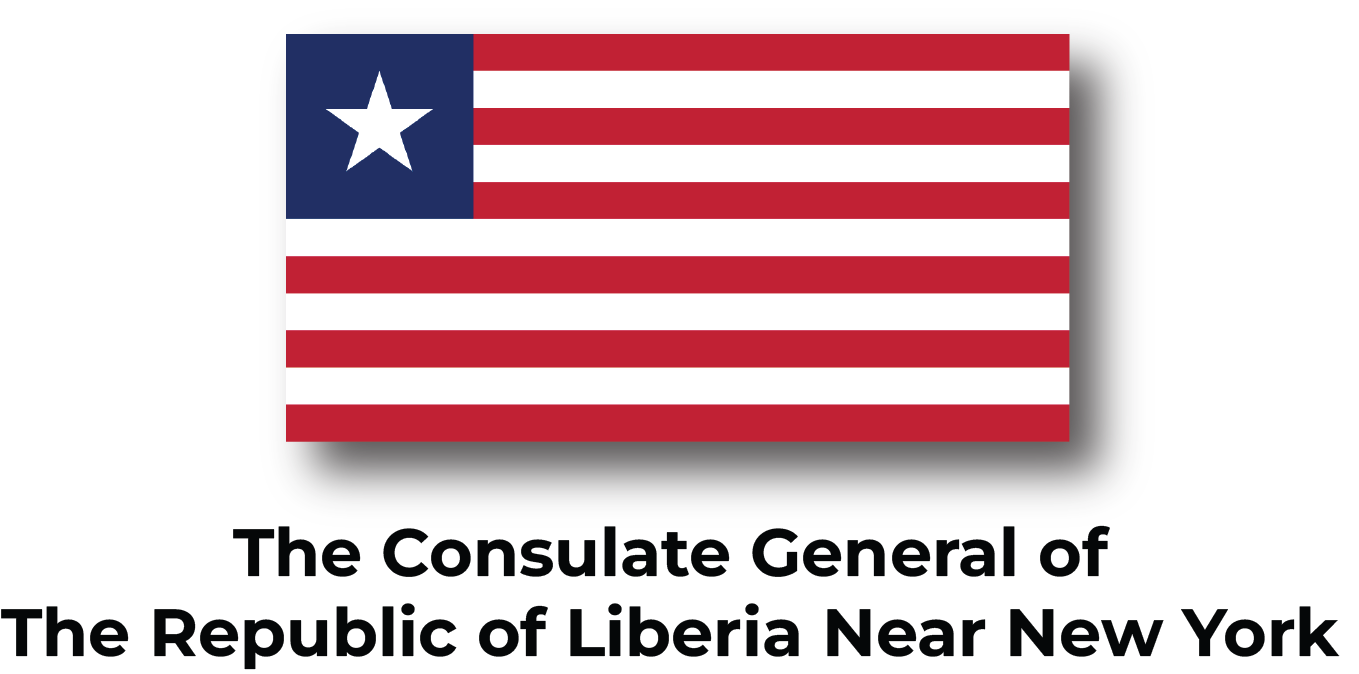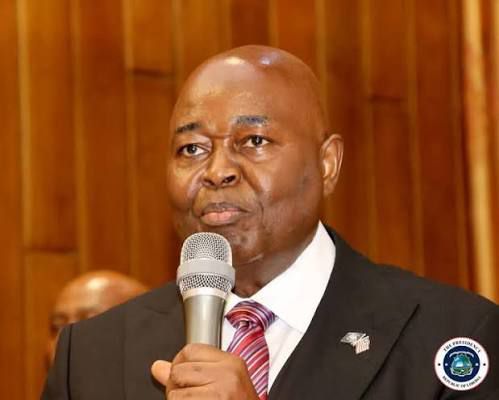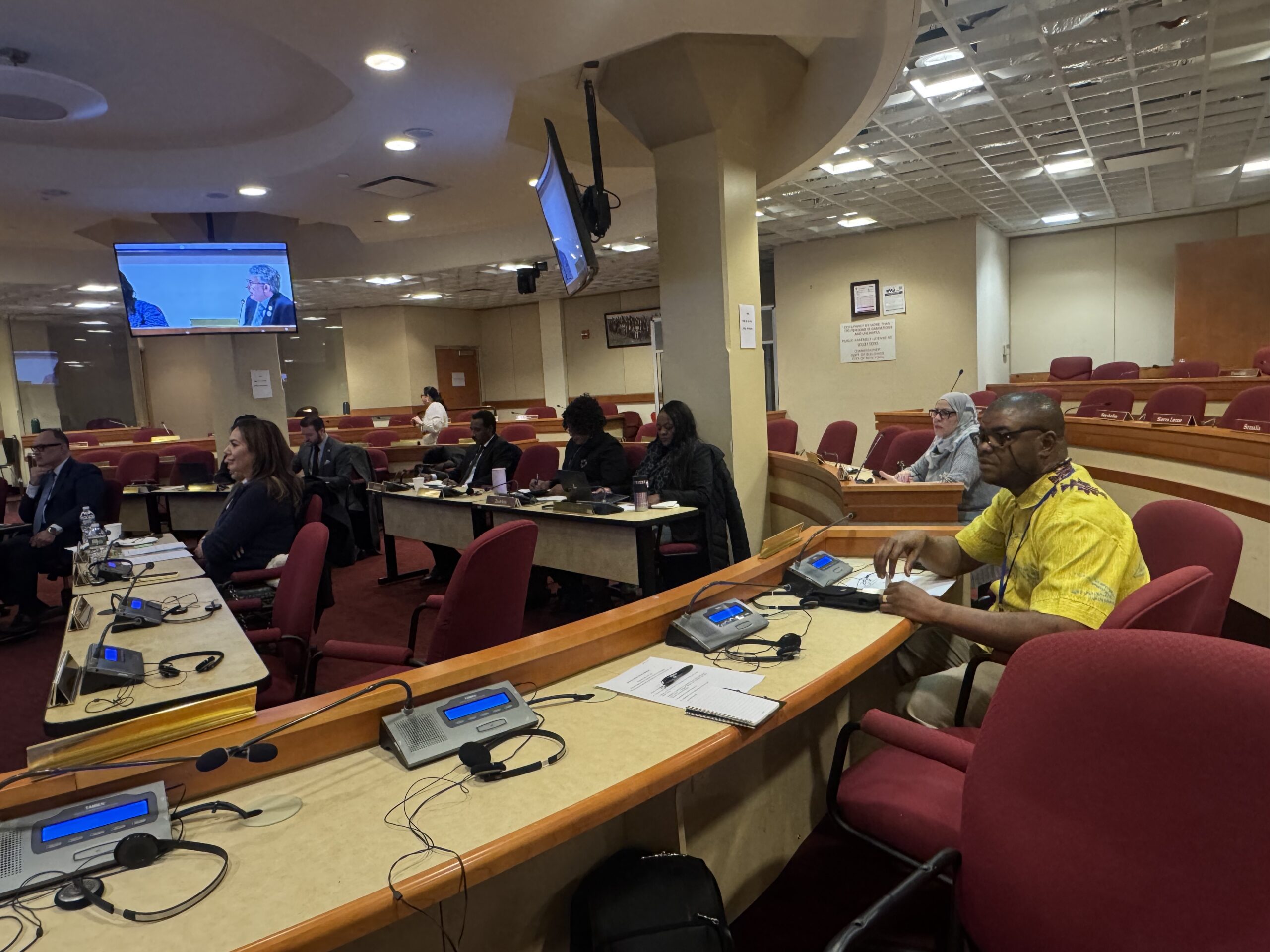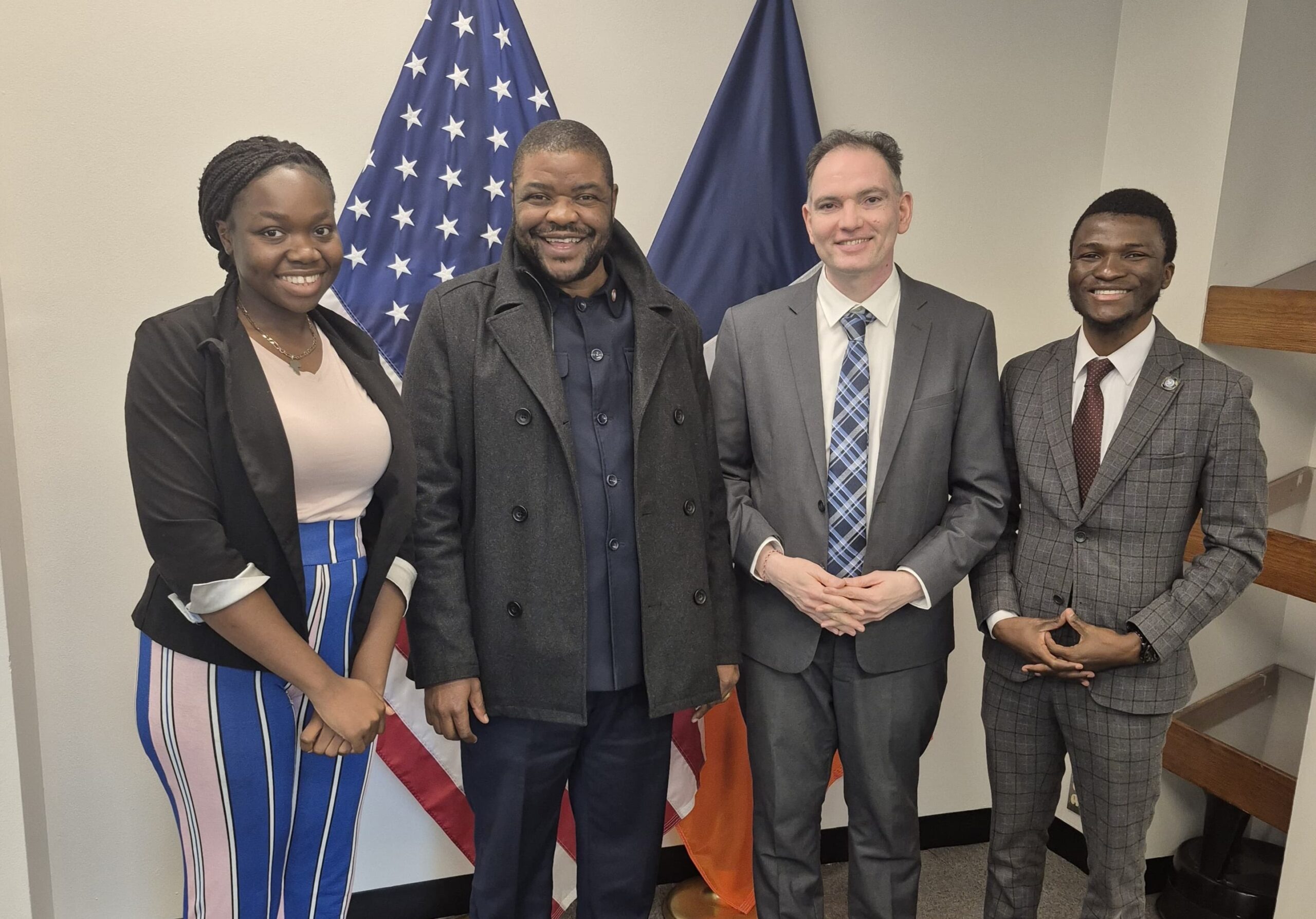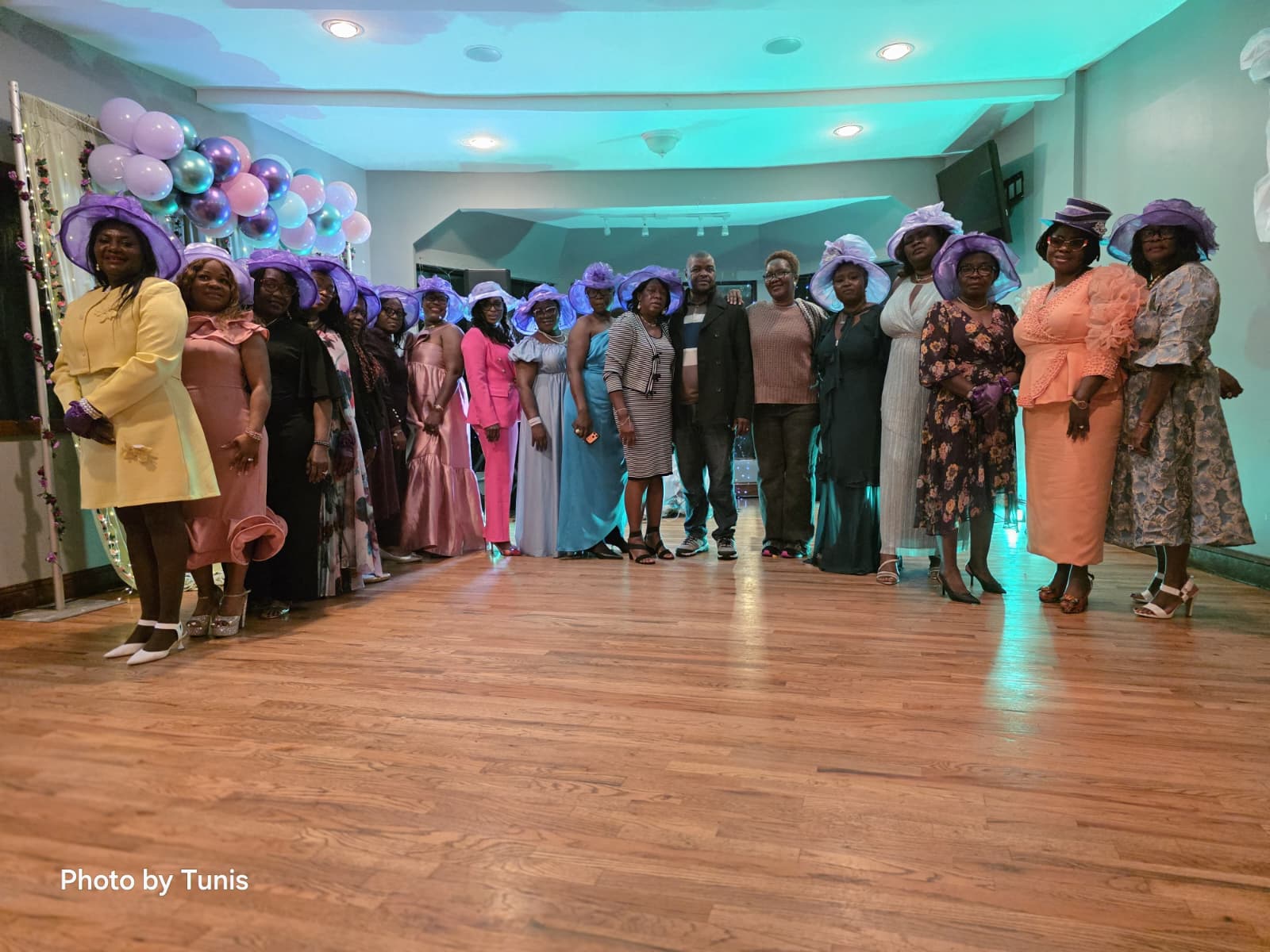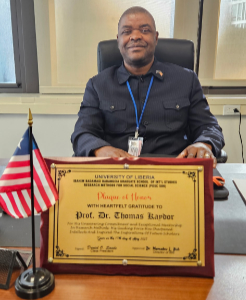The Government of the Republic of Liberia, under the leadership of His Excellency Joseph Nyuma Boakai, Sr., President of the Republic of Liberia, has welcomed with profound appreciation, the United States Government’s announcement on October 29, 2025, informing the Government of Liberia through diplomatic channels that it was implementing, with immediate effect, a visa reciprocity policy under which non-immigrant visitors’ visas (B-1), tourist visas (B-2), and combined business/tourist visas (B1/B2) will henceforth be valid for thirty-six (36) months and issued by U.S. diplomatic missions.
By Al-Hassan Conteh, Ph.D, contributing writer
This critical policy represents a reciprocal gesture of goodwill. It symbolizes a new chapter in the long-standing relations between the United States and Liberia. This friendship traces its origins to 1821, when Liberia was established as a modern state in the bulge of West Africa during the age of empires and colonialism to promote the liberty of black peoples from the United States, elsewhere in the World, and the indigenous population. Before the arrival of the settlers, Liberia was known as the Grain Coast and inhabited by ethnic groups in polities of chiefdoms and a confederacy. The country became independent on July 26, 1847. It is therefore the oldest independent African Republic.
Liberia has, since August 2024, issued three-year multiple-entry visas to United States citizens in these categories through its diplomatic missions, following intense negotiations by Liberia’s astute Foreign Minister, Madame Sara Beysolow Nyanti, with the United States Government that began in March last year. The new U.S. policy, therefore, constitutes a reciprocal action that reflects the mutual respect, trust, and enduring partnership that have characterized U.S.–Liberia relations for more than two centuries.
President Joseph Nyuma Boakai, Sr., the Chief Architect of Liberia’s foreign policy, has warmly welcomed this development, describing it as a new chapter in United States–Liberia relations based on mutual trust, shared values, and common interests.
President Boakai reaffirmed Liberia’s strong commitment to strengthening the bonds of friendship and cooperation with the United States. This commitment was underscored when President Boakai accepted an invitation from President Donald J. Trump of the United States for a Working Visit from July 7 to 9, 2025, during the United States–Africa Leadership Summit, alongside the Presidents of Mauritania, Gabon, Guinea-Bissau, and Senegal.
Following the visit, Liberia’s Minister of Foreign Affairs, Madame Sara Beysolow Nyanti, engaged in a series of high-level bilateral meetings with her U.S. counterpart, Secretary of State Marco Rubio, and other senior U.S. officials, to pursue deeper cooperation under both nations’ renewed focus on economic and commercial diplomacy.
The United States maintains approximately 185 types of visas, grouped into two main categories: non-immigrant visas, which are for temporary stays for business, tourism, study, or other specific purposes; and Immigrant visas, which are for permanent residence in the United States. The B-1 (Business), B-2 (Tourist), and B1/B2 (Business/Tourist) visas are the only categories affected by this new reciprocity policy.
The United States Government has waived the Visa Issuance (Reciprocity) Fee for Liberian applicants under this policy. However, the non-refundable application fee remains unchanged at US$185.
The 36-month validity period allows multiple entries into the United States within that period. However, the duration of each stay is determined at the port of entry by a U.S. Customs and Border Protection (CBP) officer based on the purpose of the visit.
Liberian travelers are reminded that the 36-month validity of the visa does not equate to an authorization to remain in the United States for three years. Instead, each entry’s stay period is specifically determined and stamped in the traveler’s passport by the CBP officer.
The U.S. Customs and Border Protection (CBP) Entry/Exit Overstay Report for Fiscal Year 2023 identified Liberia as one of the countries with notable visa overstay rates, often due to misunderstandings about visa validity versus authorized stay.
According to the CBP, an “In-Country Overstay” refers to a traveler who remains in the United States beyond the authorized period of admission without evidence of departure or change of status. An “Out-of-Country Overstay” refers to a traveler who departs the United States after their authorized admission period has expired.
Such overstays may affect the traveler’s eligibility for future visas and could impact Liberia’s national image in migration compliance records. The Embassy of Liberia in Washington, D.C., therefore, encourages all Liberian travelers to adhere to U.S. immigration laws and regulations strictly.
The new U.S. visa reciprocity policy is a significant and welcome development in U.S.–Liberia relations. The Government and People of Liberia view this as a symbol of renewed friendship and confidence between both nations. Liberian citizens traveling to the United States are encouraged to utilize this opportunity to foster business, educational, cultural, and people-to-people exchanges. Compliance with U.S. visa regulations will enhance Liberia’s international reputation and demonstrate that Liberians are law-abiding, responsible global citizens.
As Liberia prepares to assume its seat as a non-permanent member of the United Nations Security Council (2026–2027), this moment in U.S.–Liberia relations signifies a heightened level of trust and partnership. The Liberia Mission in the United States will implement Liberia’s commitment to upholding the principles of good governance, mutual respect, and shared prosperity that have long defined the special relationship between the Republic of Liberia and the United States of America.
Dr. Al-Hassan Conteh currently serves as the Ambassador of Liberia to the United States of America.
